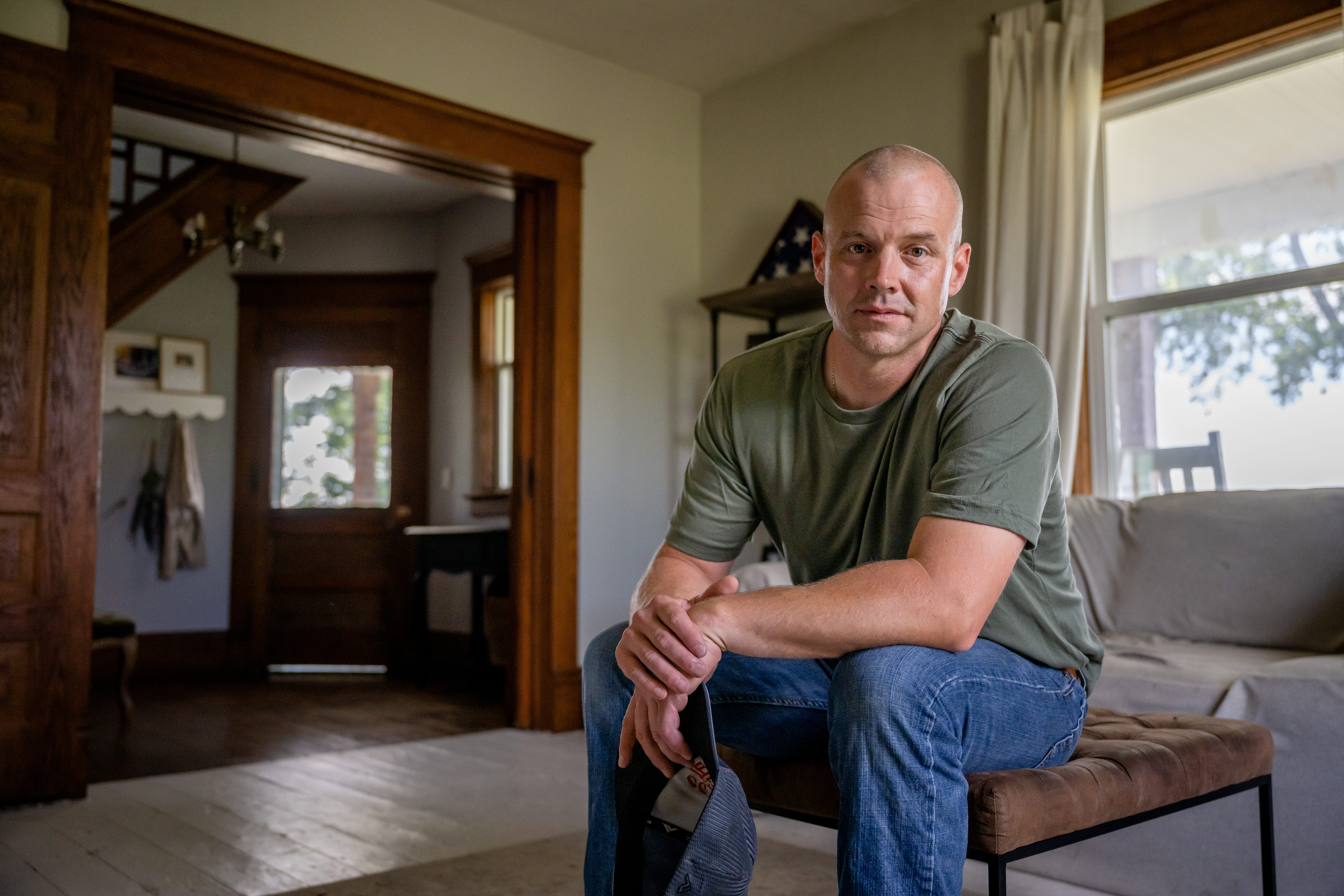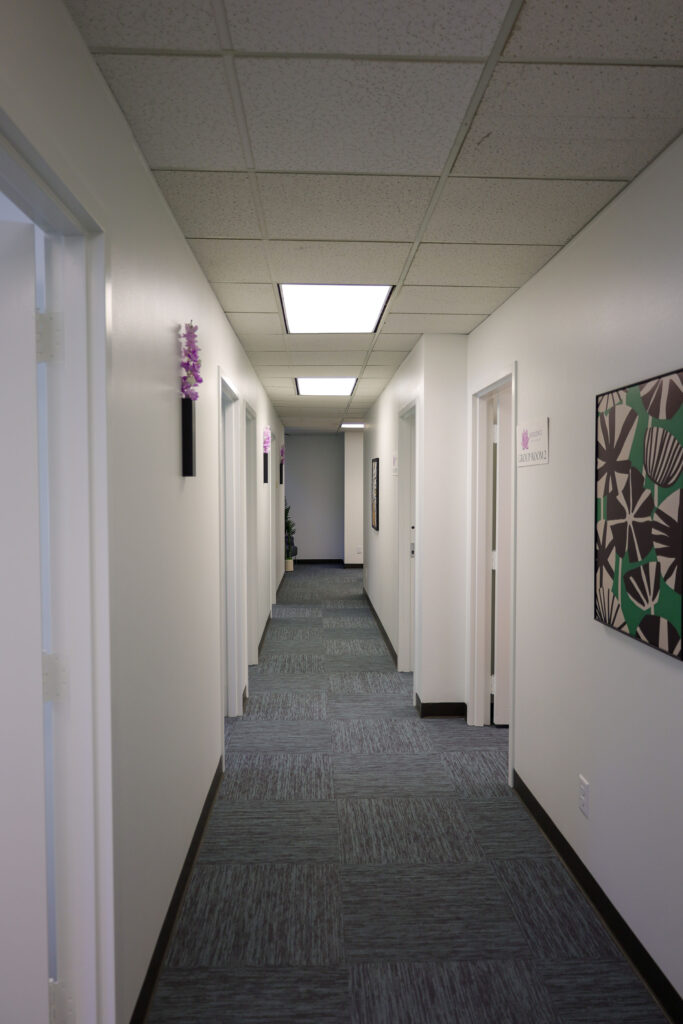Depersonalization Disorder Treatment in Atlanta, Georgia
Depersonalization Disorder Treatment
- Resilience Behavioral Health of Georgia
- What We Treat
- Depersonalization Disorder
Find lasting wellness and results from our depersonalization disorder treatment program in Atlanta at Resilience Behavioral Health of Georgia.

Treating Depersonalization Disorder in Atlanta, Georgia
Find Wellness & Healing from Depersonalization Disorder
Depersonalization-Derealization Disorder (DPDR) is a mental health condition characterized by persistent or recurrent feelings of detachment from one’s self (depersonalization) and/or surroundings (derealization). Individuals with DPDR often describe sensations of observing themselves from outside their body or feeling as though their environment is not real. This disorder can be intrusive and significantly impair daily functioning. Fortunately, there are various treatment avenues to explore, and in Georgia, one of the leading providers of depersonalization treatment in Atlanta is Resilience Behavioral Health.














Most Insurance Can Pay for up to 100% of the cost of treatment
We Work With Most MajorInsurance Companies
We understand the financial challenges of seeking treatment for mental health & substance abuse issues. Our team is committed to working with your insurance provider to assess your needs and benefits, ensuring you get the best possible care without added financial stress. Contact us today to find the right treatment plan for you.
How It Impacts Everyday Life
Understanding Depersonalization-Derealization Disorder
Depersonalization-Derealization Disorder can be perplexing and distressing for those affected. The symptoms are severe and cause significant disruption, with sufferers feeling disconnected from their sensory experiences. The prevalence of DPDR varies, but studies suggest that about 1-2% of the population may be affected during their lifetime. Common triggers include severe stress, trauma, substance use, and other mental health conditions such as anxiety or depression.
The key symptoms of DPDR include:
- Feelings of being an outside observer of one’s thoughts, sensations, or body.
- A sense of emotional or physical numbness.
- A feeling of being disconnected from one’s body or mind.
- Perception that the external world is unreal, dreamlike, or distorted.

get immediate help right now - let us give you a call
Request a 100% Confidential Callback
What Does Depersonalization Disorder Look Like?
The Signs & Symptoms of Depersonalization Disorder
Depersonalization disorder, characterized by feelings of detachment from oneself or one’s surroundings, can significantly impact an individual’s daily life. Recognizing the signs and symptoms is crucial for seeking effective treatment. Here are some common signs and symptoms associated with depersonalization disorder:
- Feeling Detached: Individuals often describe a sense of being disconnected from their thoughts, feelings, or sense of self, as if they are observing themselves from outside their body.
- Unreality: People may perceive their surroundings as unreal or dreamlike, experiencing a sense of distortion regarding time, space, or the reality of the environment.
- Emotional Numbness: Affected individuals may feel emotionally numb, unable to connect with their feelings or those of others, which can lead to difficulties in relationships.
- Memory Disturbances: Some may experience gaps in memory or a feeling of not being able to recall certain events, particularly those associated with their depersonalization experiences.
- Anxiety and Depression: Depersonalization disorder is often accompanied by symptoms of anxiety and depression, exacerbating feelings of isolation and distress.
- Impact on Daily Life: The disorder can interfere with daily activities, work, and social interactions, leading to a reduced quality of life.
In Georgia, effective treatment for depersonalization disorder typically involves a combination of psychotherapy and medication. Cognitive Behavioral Therapy (CBT) can help individuals process their experiences and develop coping strategies, while medication may be prescribed to manage accompanying anxiety or depression. Seeking professional help is essential for managing symptoms and improving overall well-being.
Can Treatment Help Heal from Grief
How Can Grief & Loss Treatment in Atlanta, Georgia Help Me?
Given the complexity and debilitating nature of DPDR, specialized treatment is crucial. Individuals often struggle for years without seeking appropriate help, primarily due to misunderstandings or misdiagnoses of their condition. Effective treatment requires a comprehensive approach tailored to the individual’s specific needs, addressing both the psychological and potential physical factors contributing to the disorder.
Resilience Behavioral Health is renowned in Georgia for its dedicated and expert approach to treating various mental health conditions, including DPDR. This institution is built on the principles of evidence-based therapy, individualized care plans, and holistic treatment methods.
RBH’s depersonalization disorder treatment in Georgia aims to provide compassionate, comprehensive mental health care that empowers individuals to overcome their struggles and lead fulfilling lives. Their philosophy emphasizes resilience, recovery, and personal growth through evidence-based practices and supportive therapies.
CBT is a cornerstone in the treatment of DPDR. This form of therapy focuses on identifying, understanding, and changing thought and behavior patterns. Key components include:
- Cognitive Restructuring: Helping patients challenge distorted beliefs and thoughts about their depersonalization and derealization experiences.
- Exposure Therapy: Gradual, controlled exposure to memories or situations that trigger symptoms, reducing the power they hold over the individual.
- Skills Training: Teaching coping strategies to manage anxiety, stress, and emotional responses.
This approach explores unconscious processes, childhood experiences, and emotional conflicts. It aims to uncover underlying psychological issues contributing to DPDR, helping patients gain insight into their inner lives and past traumas.
DBT combines standard cognitive-behavioral techniques with concepts of mindfulness, distress tolerance, emotional regulation, and interpersonal effectiveness. It is particularly effective for those with severe emotion regulation issues, helping them to stay grounded and present.
EMDR is a specialized therapy often used for trauma-related disorders but has shown promise in treating DPDR. It involves guided eye movements while processing distressing memories, helping to reduce their emotional impact.
While there is no specific medication approved for DPDR, medications to address co-occurring symptoms such as anxiety or depression can be beneficial. Resilience Behavioral Health provides thorough psychiatric evaluations to determine the necessity and effectiveness of medication for their patients.
Resilience Behavioral Health also emphasizes holistic and integrative therapies, recognizing the importance of addressing the body and mind connection. Techniques such as mindfulness, meditation, yoga, and relaxation exercises are used to help individuals ground themselves in the present moment and reduce feelings of detachment.
how can treatment help me
The Benefits of Attending a Depersonalization Disorder Treatment Program in Atlanta
Attending professional depersonalization disorder treatment in Georgia offers numerous benefits for individuals seeking relief from this challenging condition. One significant advantage is access to expert care from trained mental health professionals who specialize in treating dissociative disorders. These experts utilize evidence-based therapies, such as Cognitive Behavioral Therapy (CBT), to help individuals understand their experiences and develop effective coping strategies. This tailored approach fosters a deeper understanding of the disorder and its triggers, empowering patients to regain control over their lives.
Another key benefit is the supportive environment provided by treatment centers in Georgia. Patients are often surrounded by peers who share similar experiences, creating a sense of community and understanding that can be invaluable in the healing process. Group therapy sessions offer additional opportunities for connection and shared learning, reducing feelings of isolation. Furthermore, many treatment programs incorporate holistic therapies such as mindfulness, meditation, and stress management techniques to promote overall mental well-being.
Ultimately, professional treatment can lead to an improved quality of life, as individuals learn to manage their symptoms and navigate daily challenges more effectively. With the right support and resources, patients can work towards a more fulfilling and engaged life, free from the burdens of depersonalization disorder.
let's start with a simple conversation.
The Healing You Need isJust a Phone Call Away...
Contact us today to speak to someone who understands what you or your loved one is going through. Get a free assessment and experience the difference of expert and compassionate behavioral healthcare in Atlanta, Georgia.
Find Long-Term Healing with Treatment in Atlanta
Find Your Road to Recovery with Depersonalization Disorder with Treatment in Atlanta
Recovery from DPDR requires patience, understanding, and dedicated therapeutic intervention. Resilience Behavioral Health stands out as an exemplary provider of DPDR treatment in Georgia, offering a comprehensive, empathetic, and evidence-based approach to those in need. By addressing individual symptoms, underlying causes, and co-occurring mental health conditions, Resilience Behavioral Health facilitates a path to recovery and improved well-being.
If you or someone you know is struggling with DPDR, reaching out to Resilience Behavioral Health could be the first step toward reclaiming a grounded, fulfilling life.

